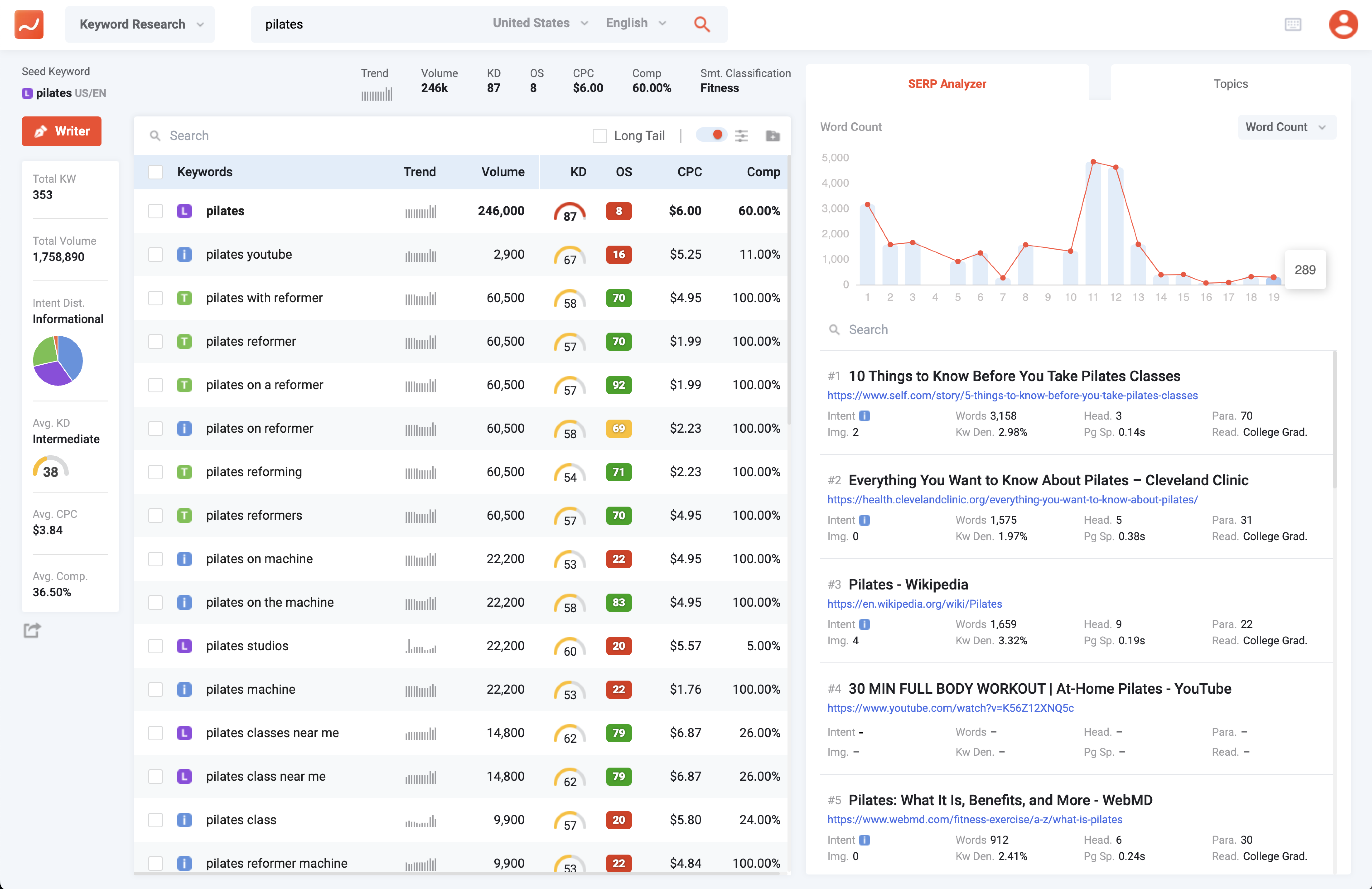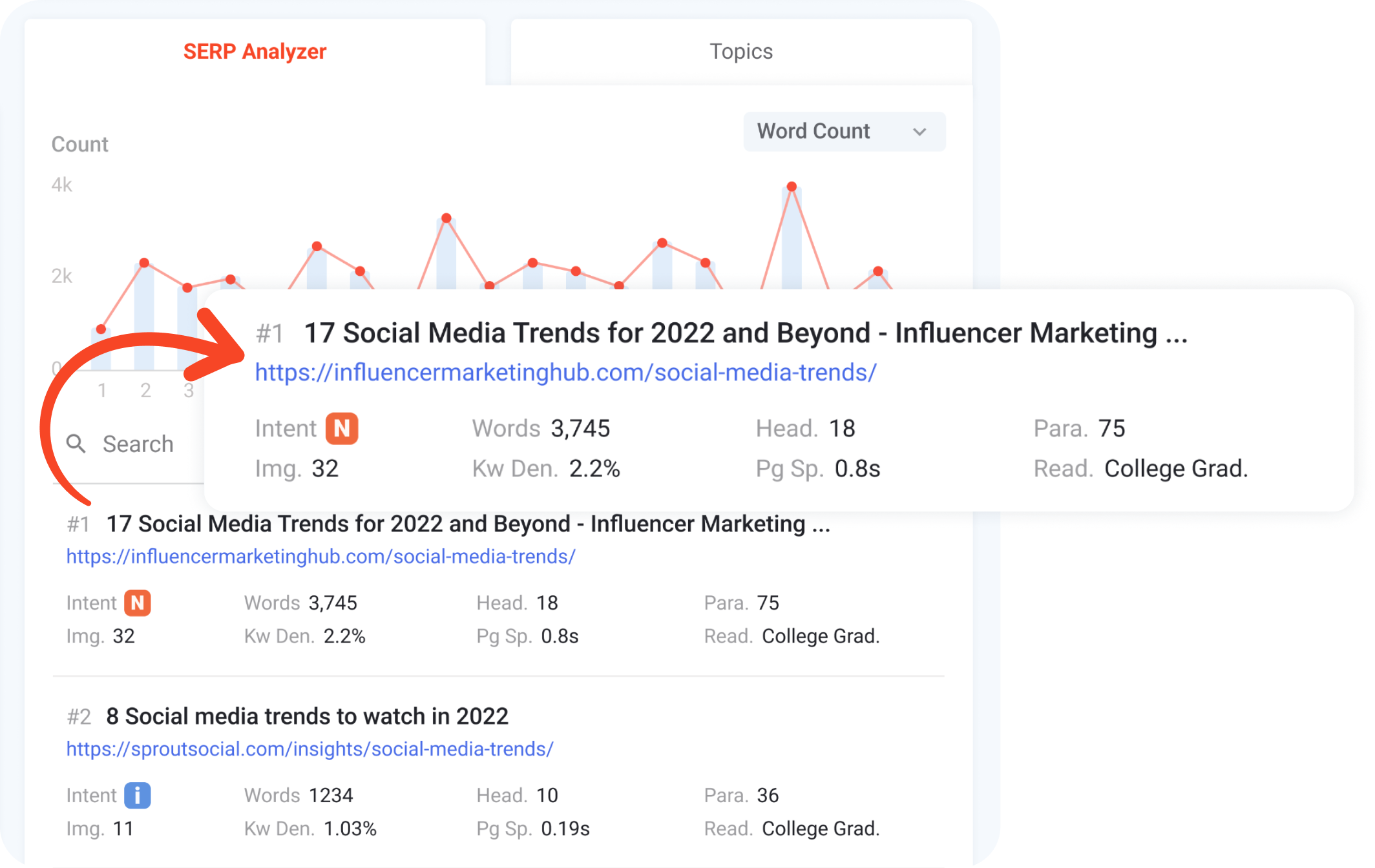Steph W. from SEOPressor


...help you check your website and tell you exactly how to rank higher?


82
score %
SEO Score

Found us from search engine?
We rank high, you can too.
SEOPressor helps you to optimize your on-page SEO for higher & improved search ranking.
By claire on January 27, 2022
Keyword finders can help you to get valuable keywords for your content marketing. So choosing the best keyword research tool is crucial for your SEO success.
Whether you’re marketing a top 100 company or a startup, there’s little guarantee that your clients can find you online if you are not ranking for the right keywords.
However, determining which keywords to work with and ensuring they aren’t too competitive is often a bit of a challenge. Here is when the keyword finder can make it as effortless as possible for you.
Here are some keyword research tips to carry out and a tool that can save your time.
Keywords are the terms that search engine users use to find your website, pages, and products. If it weren’t for keywords, there would be no need for search engines in the first place!
Keyword research is one of the first and foremost crucial steps in any marketing stage.
In fact, 0.16% of the most popular keywords are responsible for 60.67% of all searches. And according to Backlinko, the #1 result in Google’s organic search results has an average CTR of 31.7%.
That means if you choose the right keywords to optimize your content SEO and rank higher, you can get a lot of organic traffic.
When it comes to search engine optimization, the most critical factors determining your overall site performance are the keyword relevancy of your site. It is often the first step of any SEO campaign. By researching and selecting the most appropriate target keywords, you create the opportunity to rank well in search engines for that specific topic.
High rankings in search engines drive traffic to your website, and in turn, allow you to promote your products/ services online.
Sorted by length, there are two common types of keywords.
The first one is the “Short-tail keyword,” also known as head/generic keywords, which are popular, broad search terms with a very high volume of search traffic. These terms are usually one or two words, and they are very competitive to rank for. Short-tail keywords have a tremendous search volume but are also highly competitive. The audiences use short-tail keywords when they are at the very first stage of researching stuff.
The audiences use short-tail keywords when they are at the very first stage of researching stuff.
On the other hand, long-tail keywords are usually much more accessible to rank for compared to short-tail keywords. If your site is new or not highly ranked, it can take years of hard work and continuous improvement to rank for a short-tail keywords like “coffee” or “tea” — these are highly competitive search phrases.
It’s beneficial to target long-tail keywords like “how to make a cappuccino” or even more specific questions like “how tea brings benefits to health.” Creating high-quality, helpful content around them can also strengthen your website relevancy with the topic, hence helping you to get discovered by the same people who may search for broader, more competitive keywords.
These keywords would be strategically placed in and around your website on your main pages, blog posts, headers, footing text, and other locations.
To know more about other types of keywords, read: 9 Types of Keywords in SEO You Need to Know to Convert
Seed or the main keywords are the foundation of the keyword research process. Every keyword research tool asks for the main keyword to generate more keyword ideas. Seed keywords usually have one or two words. Thus, these short-tail keywords tend to have high monthly search volumes and high competition.
Seed keywords can be used to sprout other keywords for you to optimize your website. After identifying a few relevant seed keywords for your website, you can build them up with modifiers to generate long-tail keywords.
Because they affect your website’s long-tail keywords, you need to select the right seed keywords.
Don’t worry too much about competition when selecting seed keywords — their short and generic format makes them more competitive than longer and more specific keywords. Instead, choose seed keywords that reflect your website’s content and that you can build upon with the use of modifiers.
For example, if you sell fishing equipment, then seed keywords might be:
Looking for the keywords already sending traffic to your competitors is another way to do keyword research. However, you need to first identify those competitors. Then, you can start looking into your competitor keywords.
Here’s a tool that helps you discover your competitors and also see their keywords – RankingGap.
Using this tool, it will be a lot easier to find keyword opportunities that your competitors have missed out on, putting you far ahead of the race.
With the Competitor Discovery feature, you can identify your top competitors. RankingGap shows you the Competitor Graph, with the statistics about total ranked keywords, estimated traffic, and so on.
As you can see below, even if you’re pretty familiar with your industry, you can still find plenty of unique keyword ideas by studying your competitors that you probably wouldn’t have seen from brainstorming alone.
RankingGap is one of the tools with simple UI/UX that any SEO or keyword research newbie can navigate easily.
There are four views:
It could be a good idea to prioritize high-volume keywords that your competitors are not currently ranking. On the flip side, you could also see which keywords your competitors are already ranking for and try to outrank them.
Competitors can be a great source of keyword ideas. But there are tons of keywords your competitors aren’t targeting, and you can find these opportunity gaps by using free keyword research tools for SEO.
Keyword research tools often work the same way. You plug in a seed keyword and get to see a list of keyword ideas from their database.
A keyword research tool helps you find the right keywords for your content writing or optimisation. Most keyword research tools also provide accurate search engine data to guide your keyword selection. The key idea here is to select keywords with high search volume but low competition. When the right keywords are used strategically in your content, they can be extremely helpful in boosting your search ranking. Next, let’s take a look at some of my personal keyword tools.
LSIGraph Keyword Research is a powerful tool to help you easily find semantic keywords to use for your blog. Semantic keywords are contextually-related keywords like synonyms, co-occurring terms, or implied words that you can use to increase your blog content’s keyword density without falling into the trap of keyword stuffing.
One reason why I love LSIGraph is how easy and intuitive it is.
Just enter your seed keyword, choose your search location and language, and wait for the result. LSIGraph returns a list of semantic keywords you can use in your writing.

LSIGraph shows you important metrics for each of the keywords including its search volume, difficulty, cost-per-click, and competition. LSIGraph’s in-house metric, their Opportunity Score, evaluates the keywords and tells you which keywords you can rank for with the least amount of effort.
Those are the keywords you should prioritize in your blog content.
Besides finding you the most profitable keywords, LSIGraph also shows you how top-ranking pages are structuring their content with LSIGraph SERP Analyzer so you can emulate them.

Moz is an attractive and well-laid-out keyword research tool. You can put a keyword in Keyword Explorer and get information like monthly search volume and SERP features (like local packs or featured snippets) ranking for that term.
You can see monthly volume, organic difficulty, organic click-through rate (CTR), and a priority score for each search term. The priority score aggregates the difficulty, opportunity, and volume to show how likely you are to rank for that keyword phrase in a simple score.
Keyword Explorer delivers a long list of top keywords for each term, with monthly search volume and relevancy.
BiQ generates long-tail keywords that are linked semantically to your main keywords. You only need to enter a single seed keyword for BiQ to generate numerous long-tail keywords.
BiQ’s features include keyword intelligence which helps you conduct local SEO and decipher customer behavior through keyword intent analysis.
When you get your related SEO keywords, you can evaluate them through the keyword intent (whether informational, navigational, or transactional), volume, trend, and value. BiQ even gives you the content ideas and popular questions people often search for on the SERPs.
Besides, BiQ comes with other useful features like content intelligence, rank intelligence, and rank tracker.
Semrush Keyword Magic Tool is one of several free tools offered by SEO giant Semrush. You can always sign up for the paid service down the road if you’d like.
The Keyword Magic Tool starts with a seed keyword. You can sort keywords into topic-specific subgroups, apply smart filters to narrow or expand your search, and quickly export your findings. You can see related keywords by topic and semantically related keywords or by keywords with similar phrasing.
The Keyword Magic Tool gives you access to more than 20 billion keywords from over 120 geographical databases.
AnswerThePublic is a keyword research tool that aggregates Google autocomplete suggestions and helps you find long-tail keywords related to a topic. It does this by creating word clouds that visually group related queries.
Answer the Public finds questions, prepositions, comparisons, alphabetical, and related searches. This free tool populates commonly searched questions around a specific keyword.
You’ll see a visualization by default, but you can switch to a regular list.
Some keywords will be apparent, like “green tea benefits.” But it’s those obvious keywords that are also hard to rank for, as everyone has the same idea, the competition will also increase.
Consider your customers (the targeted ones) to shortlist your best keyword list. You should know what their needs, problems, and pain points are.
A good starting point is to browse industry forums, groups, and Q&A sites. This will help you find more issues that your prospective customers are struggling with. These struggles can then be converted into different blog posts or content on your website to help your SEO.
Once you find out which tools and features are most relevant to your keyword research, you can use them to build a comprehensive content strategy that will increase traffic and boost your rankings.
Wouldn’t it be great if you used a keyword finder tool that took all that data and helped you quickly create an actionable plan for content marketing improvement?
Updated: 29 June 2025


Save thousands of dollars (it’s 100x cheaper)

Zero risk of Google penalty (it’s Google-approved)

Boost your rankings (proven by case studies)
Rank High With This Link Strategy
Precise, Simplified, Fast Internal Linking.
